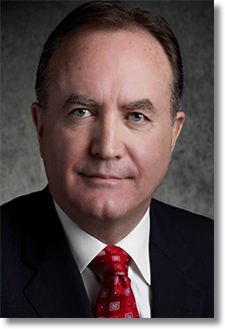Transportation and Logistics CEOs Discuss Various Industry Issues at SMC³ Jump Start 2018
In a Jump Start 2018 exclusive, SMC³ brought together supply chain leaders James Welch, CEO of YRC Worldwide, and Jason Hess, vice president and general manager premium at Union Pacific Railroad, for an in-depth chat about the road ahead.
Given the myriad moving parts-such as economic, regulatory, or trade-based ones, among others, the current supply chain, freight transportation, and logistics markets are moving at a rapid pace, with more than a lot going on at any given time.
That was made clear in a CEO panel featuring YRC CEO James L. Welch and Jason Hess, vice president and general manager premium at Union Pacific.
One of the themes of the panel focused on activity inside the Beltway in Washington, D.C. over the last year.
YRC’s Welch was blunt, explaining that the current environment is dysfunctional.
“I am always underwhelmed by what I see when I am in Washington in terms of efficiency and vision, and a lack of talent there.”
But one part of Washington of late that Welch viewed as a positive was the recently passed tax reform law, which he said, should provide an economic boost.
UP’s Hess agreed with Welch, explaining that tax reform, will help United States companies compete better globally and “creates a more favorable outlook.”
Shifting gears from tax reform, Hess said that the current regulatory environment has, in turn, led to being more favorable from a business perspective.
“This is important, because when there is more certainty…it allows companies to plan ahead for capital investment and research,” said Hess. “We have seen this in the last year.”
On the trucking side, Welch stated that regulations as they relate to safety, such as in the case of the recently-implemented electronic logging device (ELD) mandate.
“Safety is certainly the top priority of what we do,” noted Welch.
“I think it is important for the government to play a role in safety. We see so many people driving distractedly on the road, talking on the phone or texting or watching a video. It is incredible what our drivers see on the road.”
When asked if the impact of ELD could further tighten truckload business and swing the pendulum to increased LTL business, Welch said that there is a chance that could happen.
“It is dependent on how the economy goes and capacity on the truckload side,” he said. “Over the next 100 days, you could see some spillover from truckload shipments to the LTL side.
From UP’s perspective, Hess said since the ELD mandate has only been in effect for a brief time, it is a bit too early to say what the effect has been on capacity.
“In conversations with our [intermodal] customers, it does appear that capacity has tightened, but it is unclear if it is due to ELDs or not,” he said. “There is stronger demand, too.”
The unknown fate of the North American Free Trade Agreement(NAFTA) and what it means going forward was addressed by both Welch and Hess.
While Welch explained that YRC picks up its shipments within the contiguous United States, he did note that trade agreements such as NAFTA are important to the overall economy and are good for business.
“We will sort of sit back and see what happens as there is not a direct effect on our business,” he said.
Hess said NAFTA is something UP is keenly focused on, adding there are around 14 million jobs tied to cross-border trade with Canada and Mexico.
“We believe that the [gains] we are seeing in the economy with the tax code, regulatory easing could benefit with the modernization of NAFTA that could result in better policy and standards of it,” he said. “But scrapping it altogether, we think, would be detrimental.”

No comments:
Post a Comment